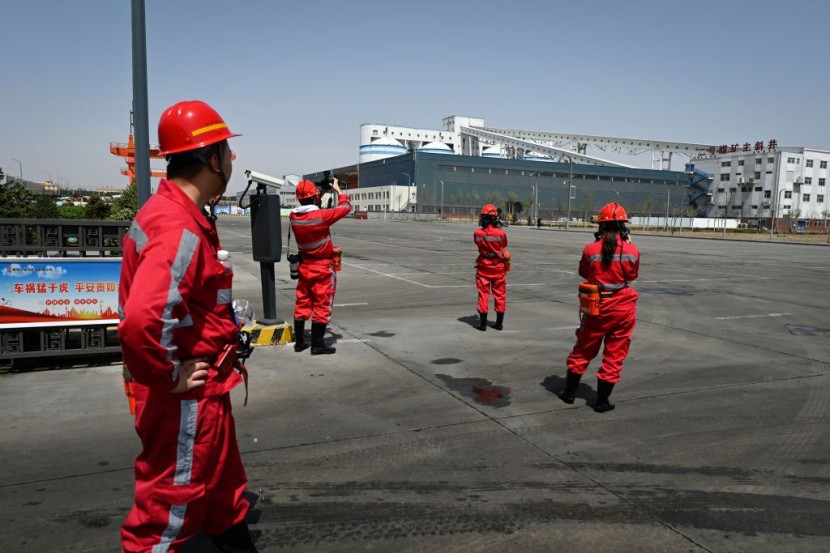On Tuesday, May 23, China announced its intention to construct first-rate industrial clusters in the Beijing-Tianjin-Hebei area that will specialize in producing cutting-edge products like electric cars and robots. This move is aimed at bolstering China's standing in the global market.
Due to growing tensions with the United States, Chinese leaders have committed to establish a contemporary industrial system and make significant advancements in technology to gain the upper hand in the situation, as reported by Reuters.
In the past ten years, China has been working towards combining the economies of Beijing and Tianjin with the neighboring Hebei province, commonly referred to as Jing-Jin-Ji. This integration could potentially result in a decrease in income disparities between regions and a reduction in pollution levels.
The Ministry of Industry and Information Technology stated that as a significant industrial center in China, Beijing-Tianjin-Hebei needs to promote coordinated industrial development to tackle new challenges and requirements. The region will concentrate on advancing integrated circuits, network security, power equipment, and the biopharmaceutical industry.
Read also : South China Sea Tension: Philippine Coast Guard Exposes China's Aggression in Disputed Waters
Promotion of Various Industries
The ministry stated that they would promote the growth of various industries, such as new energy vehicles, intelligent connected vehicles, biomedicine, hydrogen energy, and robots, and conduct research in artificial intelligence, life sciences, and aerospace technology.
President Xi Jinping declared in 2017 that a new region known as the Xiongan New Area would be constructed as a component of a government-led initiative to unite the Jing-Jin-Ji area's economy and relieve the traffic and pollution burden in Beijing.

Xi has recently promised to relocate a greater number of state-owned businesses and other establishments from Beijing to the prominent city of Xiongan, which is located approximately 100 kilometers (60 miles) southwest of the capital.
Some of Beijing's universities, government departments, and industrial firms have been relocated to Xiongan, a city assigned to undertake certain "non-capital" functions of Beijing.
The Xiongan New Area has been hailed as a blueprint for sustainable urban development in China, with the government investing heavily in infrastructure and technology to make it an attractive destination for international businesses. The area already has several high-tech industries, including artificial intelligence research centers and advanced manufacturing facilities.
On the Path To Become a Green City
In addition to promoting economic growth, the Chinese government is also focused on ensuring that Xiongan becomes a green city with minimal environmental impact. They have implemented strict regulations on construction materials and energy consumption, encouraging developers to use renewable resources such as solar power.
To further boost regional innovation, plans are underway to establish more universities and research institutes focusing on cutting-edge technologies like quantum computing and space exploration. This will create new opportunities for young people interested in pursuing careers in science or engineering fields.
Overall, Xiongan represents an exciting new chapter of China's economic development story that prioritizes sustainability and rapid growth. With continued investment from both domestic companies and foreign investors alike, this emerging megacity looks set to become one of Asia's most dynamic hubs over time!
Related article : China Accused of Sparking Conflict with Philippine Coast Guard








